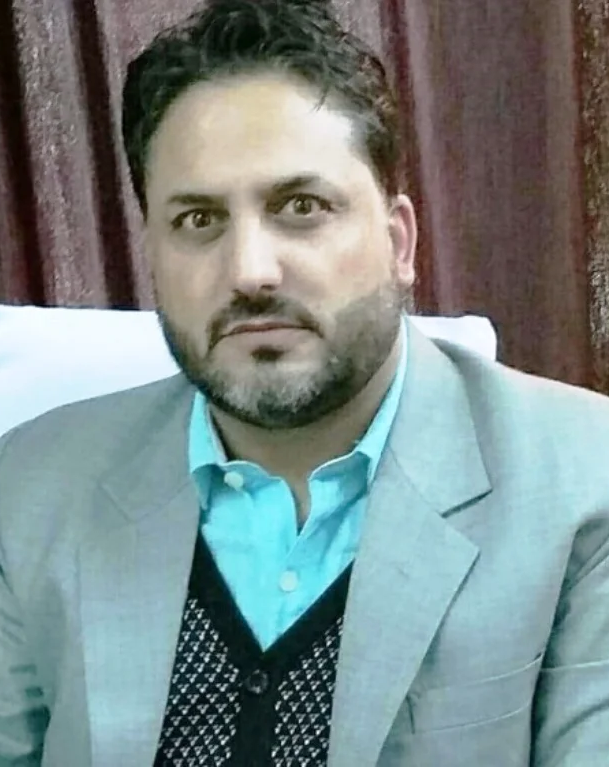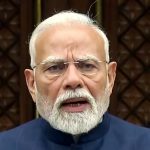TRIBUTE
I started my career in Pediatrics in 2008, and Prof. Muzafar Jan was allotted as a postgraduate guide to me and we started a study on different types of Seizures in Children of Kashmir. Since the days of our residency in pediatrics, we observed that Prof. Jan has tremendous capabilities as a guide, mentor and exemplary clinical skills to diagnose different diseases and disorders, with limited diagnostic facilities.
His approach to mentorship is rooted in a deep commitment to groom his juniors as professionals with multidisciplinary and multidimensional abilities in order to serve the nation at grass root levels, setting a powerful example for the rest of the faculty to emulate and follow the footprints. One of his most powerful qualities as a mentor is his ability to listen without judgment or any prejudice.
As a Head of the institution Prof. Muzafar Jan has created such a favorable environment, where open dialogue is not only encouraged but valued. All the faculty members, resident doctors, junior doctors and paramedics know that they can approach him with concerns, ideas, or aspirations, and that they will be met with understanding and constructive feedback. This non-judgmental approach as a Head of the Department, builded a strong collaborative relationships allowing staff to feel supported, empowered and encourages them to find their own passions within their fields and to approach their work with both curiosity and a commitment to excellence.
One of his unique approach to mentorship is that he has tacit understanding that success is not achieved in isolation, and thriving academic community is built on strong, cooperative relationships. As a leader of the institution he has fostered an environment where knowledge is freely exchanged, and colleagues feel empowered to learn from each other as much as from him.
As a clinician, Prof. Muzafar Jan is an astute pediatrician, with an “eagle’s eye” almost instinctive ability to observe the smallest details that might elude others. His sharp attention to even the most subtle signs and symptoms enables him to make accurate assessments and diagnoses where others might falter. His ability to notice patterns, connect disparate pieces of information, and detect abnormalities early is a testament to his extraordinary skill and expertise. But it’s not just his sharp observation that makes him stand out; it’s his clinical acumen—his ability to use knowledge, experience, and intuition to arrive at a diagnosis.
He possesses a deep understanding of pediatrics that goes beyond textbook knowledge. His clinical judgment is always guided by a sense of responsibility, empathy and compassion. He understands that the weight of a diagnosis is not just a technical or scientific matter; it’s a personal one that impacts the lives of individuals and their families.
His marvelous ability to make swift, informed decisions in critical situations is another hallmark of his practice. His calm demeanor under pressure reassures his patients and colleagues alike. He knows that in medicine, timing can be everything, and he never hesitates to take action when the moment calls for it. This rare combination of thoroughness and decisiveness makes him a trusted pediatrician, someone whom colleagues respect and patients feel deeply cared for in their most vulnerable moments. In addition to his diagnostic ability, he is a constant learner. Under his leadership conferences, seminars, case presentations are a regular and routine in the Department of Pediatrics.
Beyond the academics and patient care, he has proved himself as a visionary leader. His tenure as a Head of the department is marked not only by significant expansion of hospital to 500 Bedded Children Hospital, but start of different subspecialties and fellowship programs. His holistic approach has transformed the so called service hospital into center of par excellence. Today Children Hospital Bemina is one of the best pediatric hospitals in India.
Developing and nurturing subspecialties like pediatric nephrology, hematology, ophthalmology, neurology and gastroenterology are the historical achievements and these are going to strengthen the health care delivery system of nation.
Recognizing the fact that modern pediatrics requires depth as well as breadth, he spearheaded the creation and growth of these subspecialties within and outside the institution, ensuring that each area receives the attention and resources to develop and thrive. In addition to his impressive professional achievements, he is known for his remarkable social qualities, which set him apart as a leader who truly understands the human side of his work.
Despite his incredibly demanding schedule—filled with administrative responsibilities, patient care, and leading an institution—he never loses sight of the importance of relationships and community. His ability to balance the professional with the personal is a testament to his profound emotional intelligence and his commitment to the people around him.
One of the most telling aspects of his character is his unwavering presence in the lives of his colleagues, students, and staff. Whether it’s a marriage or a death ceremony, he makes it a point to attend and offer his support. This is not a superficial gesture, but a reflection of his genuine care for those who work with him.
When he attends a colleague’s wedding, he does not merely show up out of obligation. Instead, he celebrates with them, making the occasion more meaningful. His presence conveys a message that his colleagues’ happiness matters, that their achievements in their personal lives are as important as their professional ones.
Similarly, when tragedy strikes, he is there, providing comfort and solidarity. His presence in these moments of grief is a reminder that no one is alone, that their pain is shared, and that the institution’s strength comes from the solidarity of its people. In the recent past, he reached my far flung village to grief my father’s death and I vividly remember he had accompanied me to brides home.
(The Author is Assistant Professor Pediatrics, GMC Srinagar)








